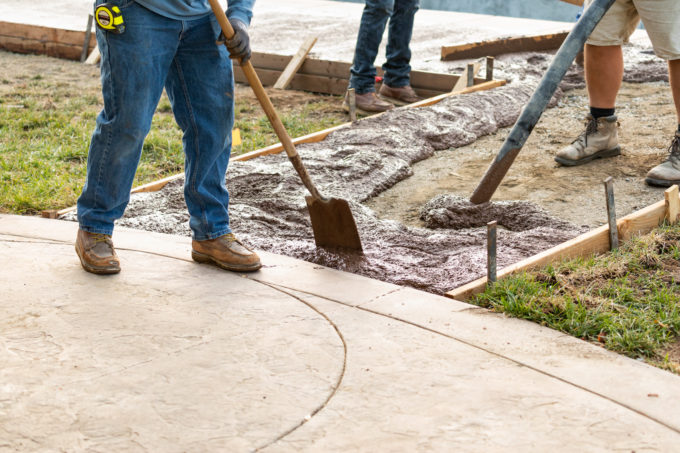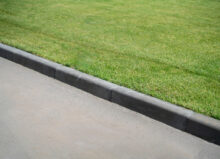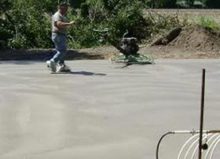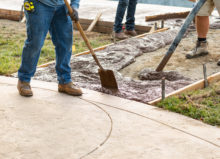The Different Grades of Concrete & Their Uses

There are many different grades of concrete available on the market. Each grade represents the concrete’s strength and is intended to help consumers match the mix with the intended application.
The difference between the various concrete grades is the overall strength of the concrete mix. When shopping for concrete, you’ll typically find grades listed as C10 and up. The “C” in the grade stands for “concrete,” while the number represents the compressive strength of concrete after it’s been poured and fully cured. The concrete grades can also be divided into two primary categories: standard and high-strength.
Let’s look at some of the most common standard and high-strength concrete mixes and their common uses.
Standard-Strength Concrete Grades
C10, C15, C20, and C25 are the four most common standard-strength concrete mixes.
C10 Concrete
The C10 concrete grade, sometimes called “Generation 1” or just “Gen 1,” is designed to achieve 10 newtons of compressive resistance 28 days after it has been poured. C10 is commonly used for numerous residential and commercial purposes, including:
- Pathways & Non-Structural Work
- Agricultural Formations
- General Floor Binding
- Filling Trenches
- Patio Slabs
- Drainage
C10 concrete is not recommended for constructing massive structural formations.
C15 Concrete
C15, or Gen 2 concrete, is designed to withstand 15 newtons of crushing force without imploding after curing for at least four weeks.
It’s an excellent grade choice for light residential and commercial applications, including:
- Foundations for Small Walls
- Residential Flooring
- Pavement Curbs
- Concrete Steps
- Floor Bindings
C15 is not recommended for large commercial/industrial applications.
C20 Concrete
Next, C20, or Gen 3, concrete can resist up to 20 newtons of squeezing force after it’s cured. It’s commonly used for domestic applications like:
- Lightweight Residential Floors
- Garage, Workshop, & Shed Foundations
- Driveways & Sidewalks
- Internal Floor Slabs
This concrete grade is generally an excellent choice for forming foundations where the overall weight of the small structures atop will be relatively light.
C25 Concrete
Lastly, out of all the standard concrete mixes, C25, or ST2, is the strongest. It can resist 25 newtons of compressive force after four weeks of curing. It’s also a highly versatile, multi-purpose concrete grade that is ideal for many domestic and commercial applications, including:
- Large Concrete Foundations
- Reinforced Concrete Bases
- Large Mass Fills
- Footings
High-Strength Concrete Grades
High-strength concrete mixes are typically recommended for heavy-duty commercial or industrial applications. The three major high-strength concrete grades include C30, C35, and C40.
C30 Concrete
C30 concrete, sometimes called ST3 or PAV1, is the least strong of the high-strength concrete grades. Its primary use is for pavement construction, but it can also be used for numerous light exterior applications, like:
- Outdoor Paved Areas
- Reinforced Bases
- Roadways
- Pathways
Please note that C30 is the lowest grade of concrete mix recommended for constructing roadways and pathways. It can resist 30 newtons of compressive force after curing, is weather- and water-resistant, and can withstand heavy traffic.
C35 Concrete
C35, or PAV2, concrete mix is a super-strong, heavy concrete mix commonly used to add structural support to large commercial and industrial buildings. Other applications include:
- External Structural Walls
- Structural Pilings
- External Slabs
C35 is designed to handle 35 newtons of crushing energy after 28 days post-pour. C35 also contains additives that minimize bubbling to protect the surface from cracking at sub-zero temperatures.
C40 Concrete
Lastly, the C40 concrete mix is the strongest of the grades we’ll review here, although there are higher grades used for extreme industrial purposes. C40 can resist 40 newtons of crushing pressure after it has cured for at least four weeks. It’s commonly used for constructing:
- Massive Industrial Support Beams
- Commercial Construction Sites
- Large Industrial Foundations
- Outside Paved Areas
- Reinforced Bases
C40 is also corrosion-resistant, so it’s very useful for various roadwork, agricultural, and farm applications, including constructing slurry containers and septic tanks.
Start Your Concrete Project With Help From G&G Concrete & Construction
For concrete installations, project success starts with choosing the right concrete mix. If you have questions about the different grades of concrete or need professional advice for your project, turn to G&G Concrete & Construction. Founded over 20 years ago, we’re a family-owned and -operated commercial and residential concrete construction contractor. We handle all types of concrete projects, including walkway construction, stamped concrete installations, road repairs, and more.
Start your project on the right foot, and contact us today to schedule a consultation with one of our experts.




